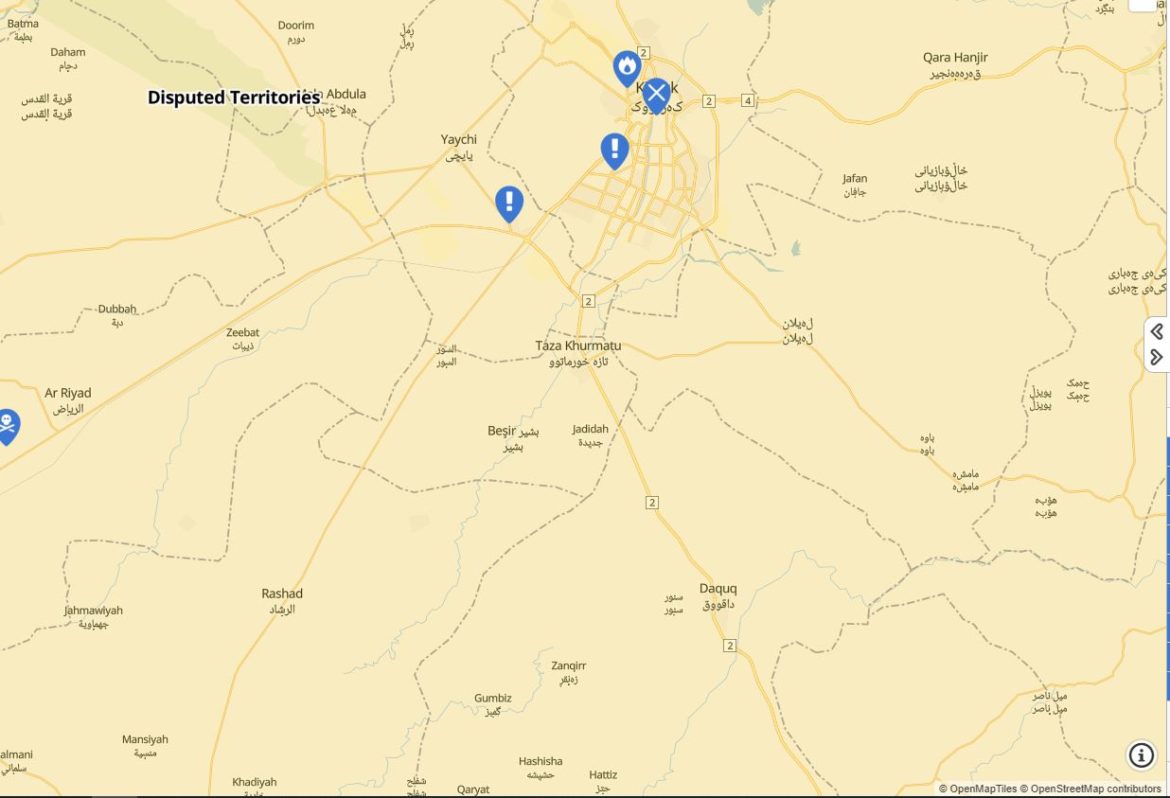1.2K
Kirkuk
- On April 4, Kurdish, Arab, and Turkmen residents of the villages of Topzawa and Tarkalan demonstrated against the Iraqi army. They demanded the removal of an army checkpoint on the main road to their villages. According to the residents of the two villages, the checkpoint has created many obstacles for them, and the villagers are often insulted and harassed by soldiers.
- On March 31, the Integrity Commission announced that Kirkuk’s education department is the third most corrupt in Iraq, after Baghdad and Diwaniyah. According to the commission, the department’s bribery rate is 23.40%, followed by Diwaniyah at 43.60% and Baghdad at 58.40%. After the events of October 16, 2017, the acting governor of Kirkuk, Rakan al Jabouri, appointed the director of the education department. The department faced several corruption and bribery cases, including in the hiring processes of teachers. On a different note, Iraq’s education ministry announced hiring 17,367 contracted teachers in Kirkuk. However, only 16% are Kurds, despite Kurdish schools needing more teachers than others.
- On April 5, ISIS (Da’esh) terrorists attacked a military checkpoint of the 61st Brigade of Sunni Hashd militias, part of the Popular Mobilization Units (PMU). The attack targeted the group near a checkpoint in the Hawija district, killing one and severely wounding two others. In the city, on April 3, an IED exploded in an emergency police vehicle at a checkpoint nearby. No casualties were reported.
- Acting Kirkuk Governor al Jabouri announced that his administration had allocated 25 billion dinars for the restoration of the historic Citadel, and the project is being implemented in coordination with the Ministry of Planning and Culture. Activists in Kirkuk raised concerns about the project since ancient sites require companies with archaeological expertise, not local contractors without experience.
- According to statistics published by the State Organization for Marketing Oil (SOMO), in March 2023, 1,727,494 barrels of oil were exported from Kirkuk oil fields through Ceyhan Pipeline, grossing $124,552,317 at an average of $72.10 a barrel. Meanwhile, Jordan exported 309,841 barrels, totaling $19,383,652 in revenue at an average price of $62.56 per barrel. SOMO statistics revealed the revenue total for March at $143,935,969. Compared to February, this represents a decrease of about $85 million in revenue due to the suspension of Kirkuk oil exports after a court ruling in Paris.
Tuz Khurmatu
- On April 1, Mahdi Taqi Amrly, head of the Iranian-backed Badr bloc in the Iraqi parliament, said: “We have asked the Iraqi prime minister to make Khurmatu a province like Halabja.” In 2013, the Council of Ministers decided to make Khurmatu a province. According to him, in terms of population and geographical area, the Tuz Khurmatu district has the right to become a province. Iran and its Iraqi proxies have been pushing for the creation of Tuz Khurmatu province despite the district being part of the disputed territories between Baghdad and Erbil.
Shingal (Sinjar)
- On April 1, retired General Jabar Yawar, former Secretary of the Peshmerga Ministry, announced that the Sinjar agreement was made without the participation of the Yazidis, so it could not be implemented because they are against the agreement. He said, “The agreement was made in a hurry, and many aspects were not interpreted, such as the reconstruction of Sinjar.” He also revealed that the Sinjar agreement cannot be implemented until the displaced Yazidis return. The district remains unstable, lacking primarily services and suffering security chaos.

